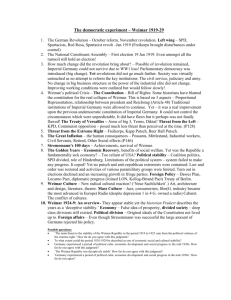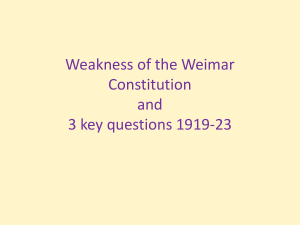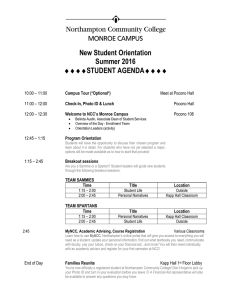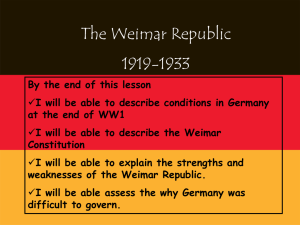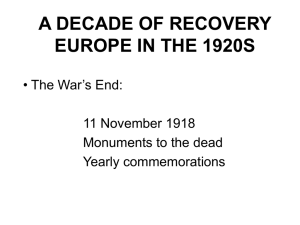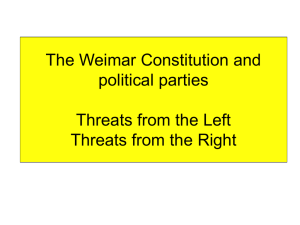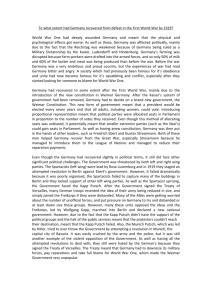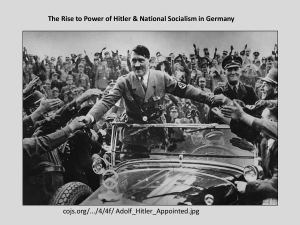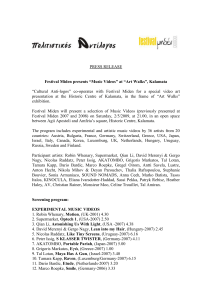Aims - StudyHistory.co.uk
advertisement
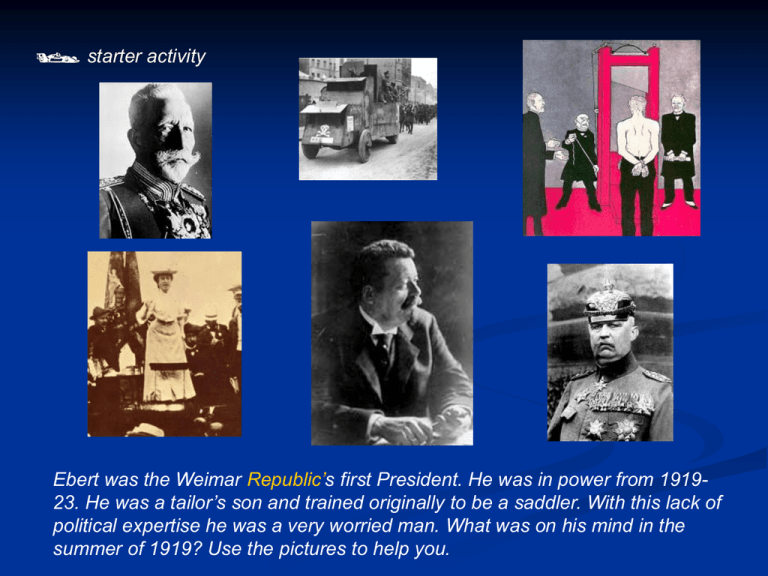
starter activity Ebert was the Weimar Republic’s first President. He was in power from 191923. He was a tailor’s son and trained originally to be a saddler. With this lack of political expertise he was a very worried man. What was on his mind in the summer of 1919? Use the pictures to help you. What was the Weimar constitution? Aims Understand the key elements of Weimar constitution Evaluate its strengths & weaknesses Assess the challenge to the government from the right Main features of new Weimar Constitution approved by the National Assembly, July 1919 Your task Create a table similar to the one below and list the advantages and disadvantages with this constitution. Your table should be about ½ side of A4 Advantages Disadvantages Advantages All Germans had equal rights, including the right to vote Proportional representation made sure parties had the same percentage of seats in parliament as they did in the election Provided a strong leader to keep control over the country in an emergency Each state had its own assembly to represent local interests Disadvantages It was too radical an experiment given the volatile nature of German society after the war PR encouraged lots of small parties so no one party ever had enough seats to form a majority government The president could use Article 48 to become a dictator Local states could resist the authority of central government Kapp Putsch, March 1920 Wolfgang Kapp (1868-1922). Journalist & founder of Fatherland Party. Elected to Reichstag as monarchist in 1919. Following failure of Kapp Putsch, fled to Sweden in 1922 where he died awaiting trial Take notes on the following: Causes Aims Outcome Causes: resentment of Tr of Versailles, esp. limits on size of army & Freikorps; Weimar Constitution – gave prominence to extremist parties Aims: replace Weimar govt. with new national government headed by Kapp Outcome: workers rallied to Weimar govt and declared a general strike Extension task How similar / different was the Spartacist Uprising (1919) to the Kapp Putsch (1920)? Spartacists defending govt. newspaper offices Army & Freikorps defending Berlin SIMILARITIES Led by charismatic, political extremists Disliked govt & aimed to overthrow it Centred on Berlin DIFFERENCES Spartacists were antiWar, Kapp Putsch supported the army Kapp was a monarchist, Spartacists wanted a Communist revolution Kapp enjoyed support of Freikorps

